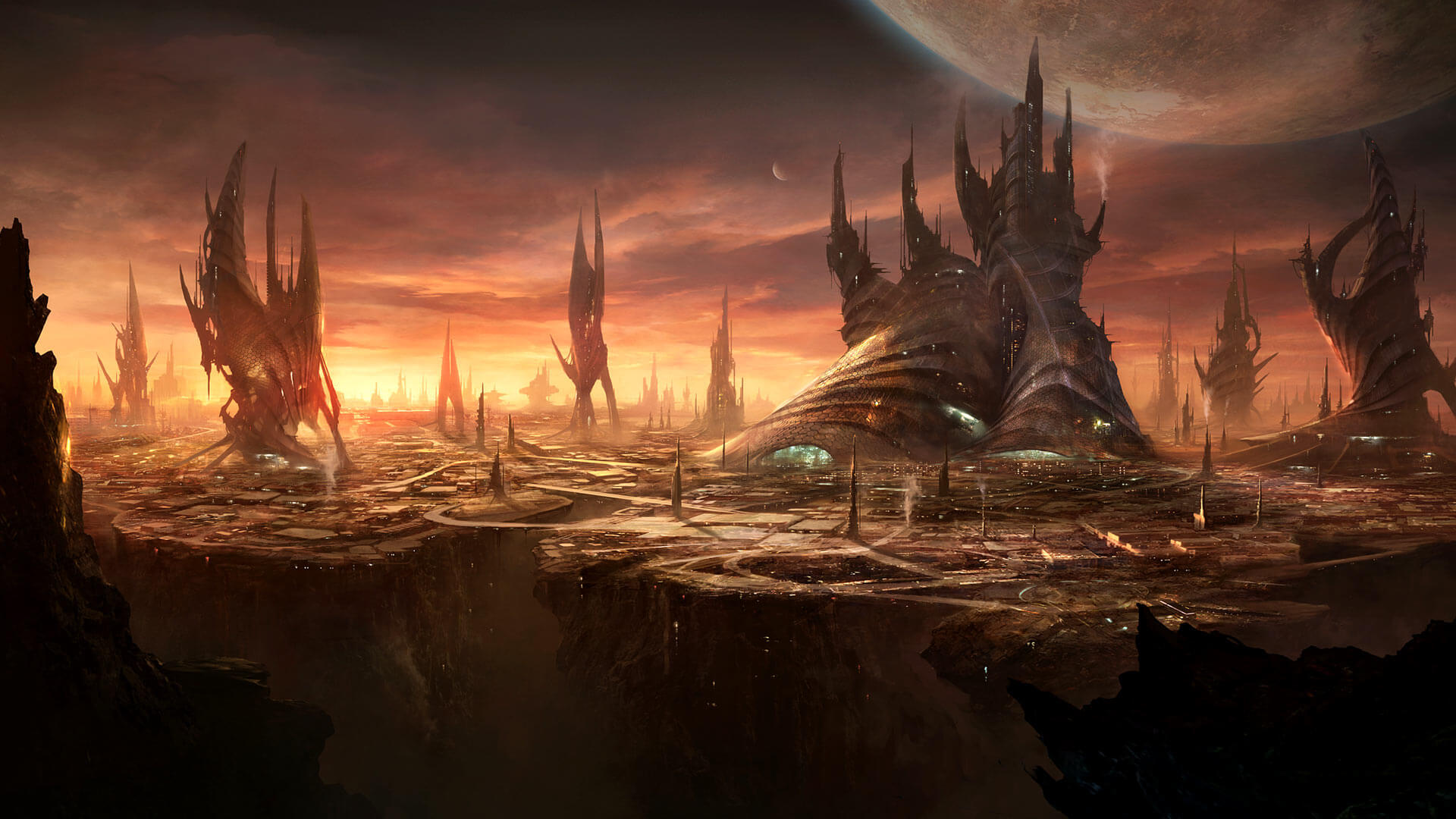With an unknown mass orbiting a distant star, a new Star Wars trailer just released for the frothing fans, and The Martian as a current best-selling book and movie, popular culture is swept up in the collective gaze towards the stars. So, we’ve come to a new dev diary from the Stellaris team and this one’s got character. I mean it’s about game characters/species/empires… No? Alright.
Your galactic empire starts like all bureaucratic nightmares — with a few questions. First, you will need to pick your starting “class” or biological kingdom. Will you be “(Mammalian, Arthropoid, Avian, Reptilian, Molluscoid or Fungoid)” all of which will change “the names of their ships and colonies” that they inhabit. Small touches, like a cute little hat randomly placed on a grasshopper-like alien species, are what make Paradox’s GSGs feel personal and moving; even when you are committing some form of inhuman genocide.
Those first touches are merely cosmetic compared to the choices we will make in the future. Our next step in the species creation checklist asks us to use a healthy scoop of Ethos. If you haven’t been in a common core classroom lately, Ethos is the spirit of your chosen alien culture. Ethos affects things like “the behavior of AI empires, likely technologies, available policies and edicts, valid government types, the opinions of other empires, and – perhaps most importantly – it provides the fuel for internal strife in large and diverse empires.” When you start your game, you’ll need to dedicate three points into varying ethics (and if you put two points into one category you will become a fanatic). These categories are separated into distinct sections:
Collectivist — Individualist
Xenophobe — Xenophile
Militarist — Pacifist
Materialist — Spiritualist
The importance of these choices is how they will allow you to pursue a form of governmental dominance.
Your Ethos will limit your valid selection of government types, but there are always at least three to choose from; an oligarchy of some kind, a democracy or a monarchy. They all have their advantages and disadvantages. For example, in monarchies there are no elections, and you do not get to choose your successor when your ruler dies (except in Military Dictatorships), and if you die without an heir, all Factions in the empire will gain strength (oh, and there may be Pretender factions in monarchies…) On the other hand, each ruler may build a special “prestige object” in his or her lifetime, named after themselves. For example, military dictators can build a bigger, badder ship, and Divine Mandate monarchs can build a grand Mausoleum on a planet tile.
So we have the beginnings of what looks like a space opera mixed with a spreadsheet. Would you want it any other way? But that is the sublime madness that comes with a large scale, detail oriented strategy game. The choices.
Yes, like all good empires, these choices will mutate as your borders grow. Your people will only be as loyal as your control. Space colonists on the edge of civilization might more readily engage in space pirating and other nefarious space… stuff. The Stellaris team, speaking through game director Doomdark, says
It is natural for individual Pops to diverge in their Ethics, especially if they do not live in the core region of your empire. This has far reaching consequences for the internal dynamics of empires; how Pops react to your actions, and the creation and management of Factions, etc (more on that in a much later dev diary!) Traits are not as dynamic as ethics, but even they can change
your culture and people will change, radically if need be, and this is where the excitement of true experimentation can take place. What’ll happen in the great vacuous expanse that is space? We will keep chipping away as the development diaries keep appearing.
Let us know what you think in the comments below. Are the space options too limited, or are they just right?







